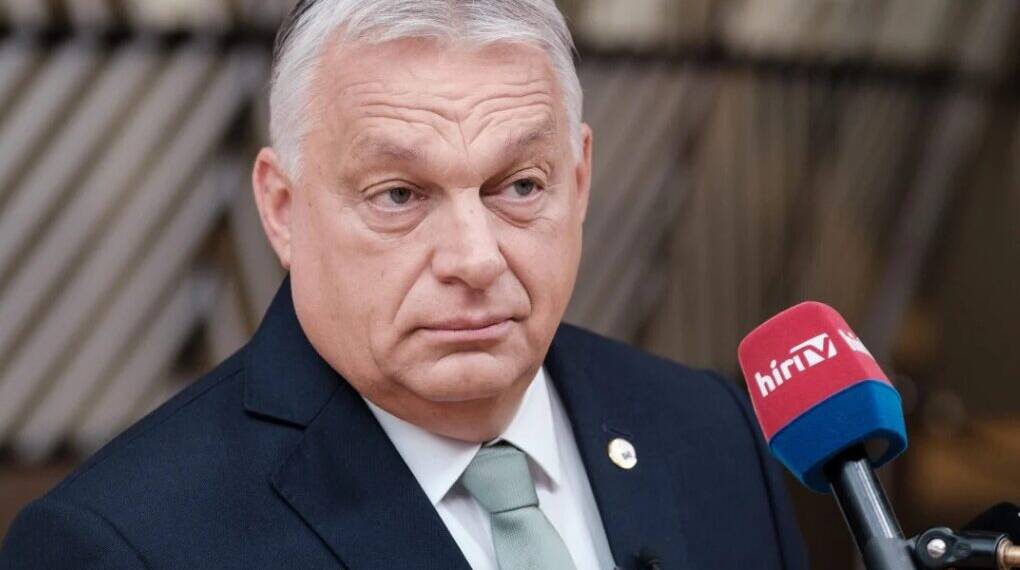Hungarian Prime Minister Viktor Orban has once again broken ranks with his fellow European Union leaders, declining to sign a joint statement reaffirming support for Ukraine just days before a highly anticipated summit between U.S. President Donald Trump and Russian President Vladimir Putin.
The statement, agreed upon by 26 of the EU’s 27 member states on Aug. 12 following emergency talks the previous day, emphasized two core principles: that international borders must not be changed by force, and that “the path to peace in Ukraine cannot be decided without Ukraine.”
The declaration also offered political backing for Ukraine’s sovereignty, signaled willingness to expand security guarantees, and reiterated support for Ukraine’s bid to join the EU.
Orban’s decision to withhold Hungary’s signature reflects a deepening rift between Budapest and the EU over how to confront Russia’s war against Ukraine. In a social post on X Orban explained his refusal by accusing the statement of trying to “set conditions for a meeting to which leaders of the EU were not invited” — referring to the Aug. 15 Trump–Putin talks in Alaska.
“The only sensible action for EU leaders is to initiate an EU–Russia summit, based on the example of the U.S.–Russia meeting,” Orban wrote, suggesting that Europe should pursue its own direct diplomatic channel with Moscow rather than simply supporting U.S.-led initiatives.
His comments come after Trump himself confirmed that he had consulted with Orban ahead of his meeting with Putin. According to multiple accounts, Orban privately cast doubt on Ukraine’s ability to prevail militarily, describing Russia as a “strong country” that “wins through war.”
The EU statement — which Hungary alone rejected — walked a careful line. It expressed cautious approval of Trump’s stated aim to end the war, but warned that “meaningful negotiations” could only begin if there was a ceasefire or a substantial reduction in hostilities.
Leaders also stressed Ukraine’s “inherent right to choose its own destiny” and pledged continued political, economic, and military support for Kyiv’s defense.
A Pattern of Obstruction
Orban’s veto is far from an isolated incident. Since Russia’s full-scale invasion of Ukraine in February 2022, the Hungarian prime minister has repeatedly blocked or delayed EU measures designed to pressure Moscow or support Kyiv.
He has opposed certain rounds of sanctions against Russia, resisted EU funding for Ukrainian military aid, and expressed skepticism about Ukraine’s readiness for EU membership.
Critics in Brussels accuse Orban of undermining EU unity at a critical moment, while his defenders argue he is safeguarding Hungary’s national interests and advocating for a negotiated settlement to the conflict.
Hungary maintains significant energy ties with Russia and has sought to preserve what Orban calls a “balanced” foreign policy — even as most EU members have moved to isolate the Kremlin.
Orban’s approach has frequently mirrored Kremlin narratives. He has called for an immediate ceasefire without preconditions, framed the war as a broader conflict between the West and Russia, and questioned the feasibility of Ukraine regaining lost territories by force.
These positions have placed him at odds with the majority of EU leaders, who view sustained military support as essential to ensuring Ukraine can negotiate from a position of strength.
Timing and Tensions
The timing of Orban’s latest refusal is particularly sensitive. The Trump–Putin meeting on Aug. 15 will be the first face-to-face encounter between the two leaders since Trump returned to the White House earlier this year. It is widely seen as a test of whether Washington can broker a ceasefire or broader peace framework in Ukraine — though Kyiv has not been invited to participate directly.
European officials worry that excluding Ukraine from such high-level talks risks producing an agreement that prioritizes geopolitical stability over Ukrainian sovereignty and territorial integrity. That concern is reflected in the EU statement’s insistence that “the path to peace in Ukraine cannot be decided without Ukraine.”
By refusing to sign, Orban has not only broken the appearance of EU consensus but also signaled tacit support for Trump’s bilateral approach — one that many in Brussels fear could sideline European interests.
Diplomatic Fallout
While Hungary’s veto does not prevent the other 26 EU members from issuing their joint position, it highlights the bloc’s internal divisions at a time when unity is considered strategically vital.
European Council President Charles Michel has not commented publicly on Orban’s move, but diplomats privately acknowledge frustration over what they see as Hungary’s repeated obstruction of common policy on Ukraine.
Analysts say Orban’s stance may embolden Russia by signaling that EU unity on sanctions, military aid, and diplomacy is not absolute. It could also complicate coordination with Washington if Trump seeks to portray Orban’s position as representative of broader European sentiment — even though the overwhelming majority of EU leaders disagree.
For now, all eyes are on Alaska, where Trump and Putin will meet amid high global stakes. Whether Orban’s refusal will influence the summit’s tone or outcomes remains unclear. But within the EU, his latest break from the consensus underscores a persistent reality: when it comes to Ukraine, Budapest is charting its own course.








